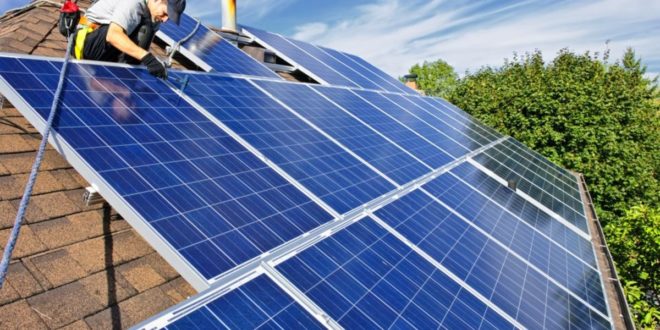Solar energy is one of the most popular forms of renewable energy, and it’s not hard to see why. But with a variety of options in the market, it can be hard to know which one is right for you. This blog post will look at the three most common types of solar panels: monocrystalline, polycrystalline, and thin film.
We’ll discuss the pros and cons of each type so that you can make an informed decision about which solar panel is right for your needs.
Monocrystalline Solar Cells
Monocrystalline solar cells are made from a single crystal of silicon. They are the most efficient type of solar cell, and they are also the most expensive. Monocrystalline solar cells have a black appearance and are often used in residential applications.
Pros
- High efficiency (up to 22%)
- Long lifespan (up to 40 years)
- Lower temperature coefficients (meaning they perform better in hot weather)
Cons
- High initial cost
- Susceptible to shading (shading can reduce their efficiency by up to 50%)
Polycrystalline Solar Cells
Polycrystalline solar cells are made from multiple crystals of silicon. They are less efficient than monocrystalline solar cells ( typically around 15-20%), but they are also less expensive. Polycrystalline solar cells have a blue appearance and are often used in commercial applications.
Pros
- Lower initial cost
- Not as susceptible to shading as monocrystalline cells
Cons
- Reduced efficiency
- Shorter lifespan (around 25 years)
Thin-Film Solar Cells
Thin-film solar cells are a more cost-effective and environmentally friendly alternative to traditional silicon-based modules. They can be made by depositing one or more thin layers, which may include metal compounds like copper indium gallium selenide (CI(G)S).
Thin-film solar cells are less efficient than monocrystalline and polycrystalline solar cells but are also the least expensive type of solar cell. Thin-film solar cells can be made in various colors and are often used in industrial applications.
Pros
- Low initial cost
- It can be made in a variety of colors and sizes
Cons
- Low efficiency
- Shorter lifespan (around 20 years)
There is no “one size fits all” when it comes to solar panels. The type of solar panel right for you will depend on your specific needs and preferences. If you’re looking for the most efficient option, then monocrystalline solar cells are the way to go. But if you’re working with a tight budget, then thin-film solar cells may be a better option.
Ultimately, the best way to choose a solar panel is to consult with a professional who can help you assess your specific needs and find the perfect solution for your home or business. When deciding which type of panel to install, consider your budget and your long-term energy needs.


